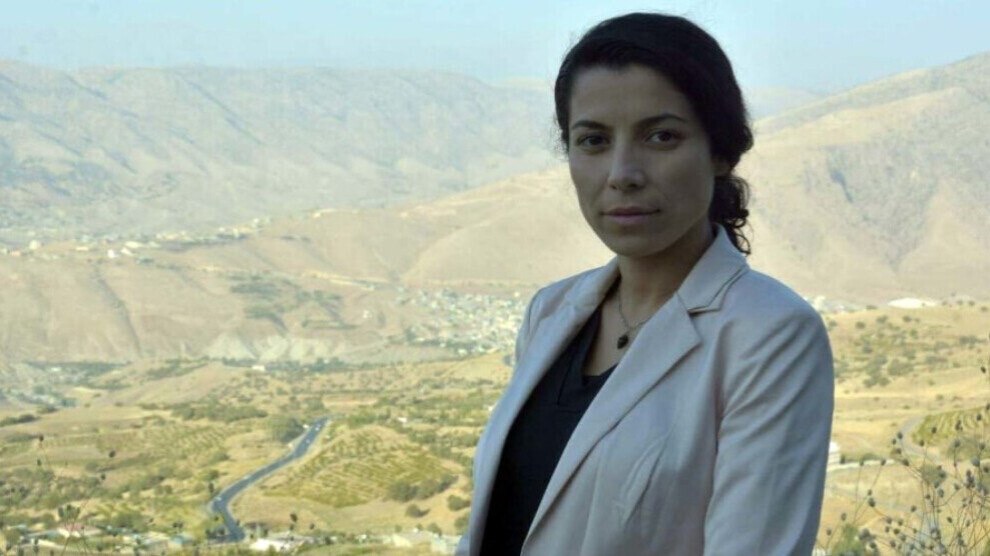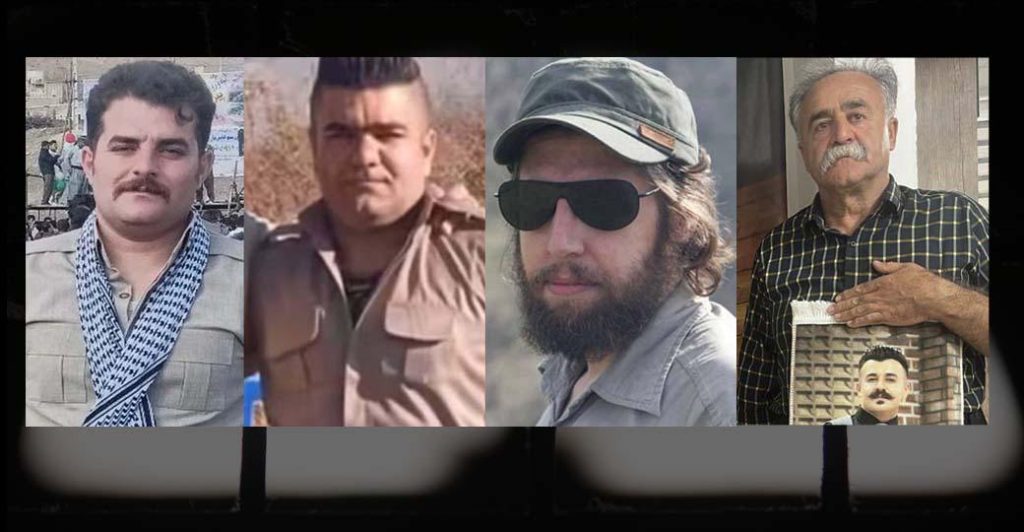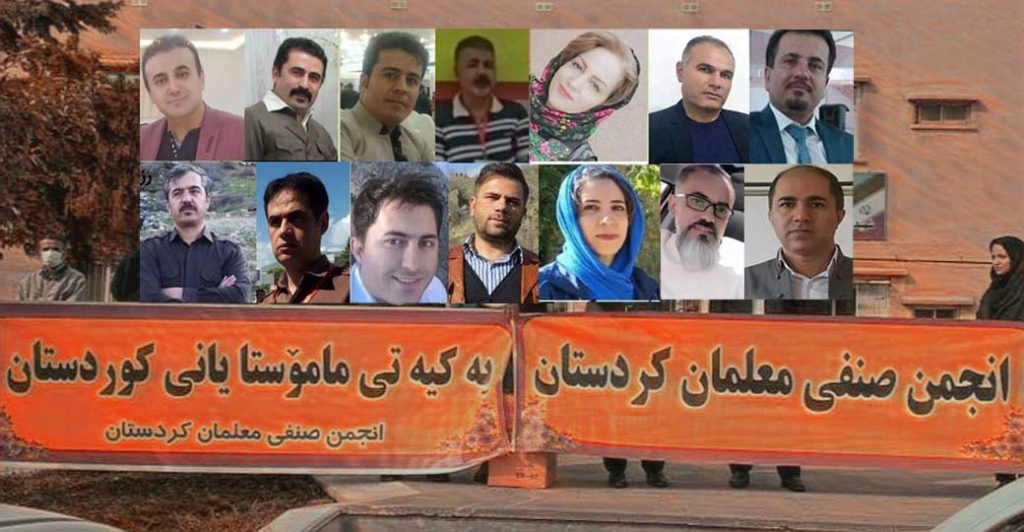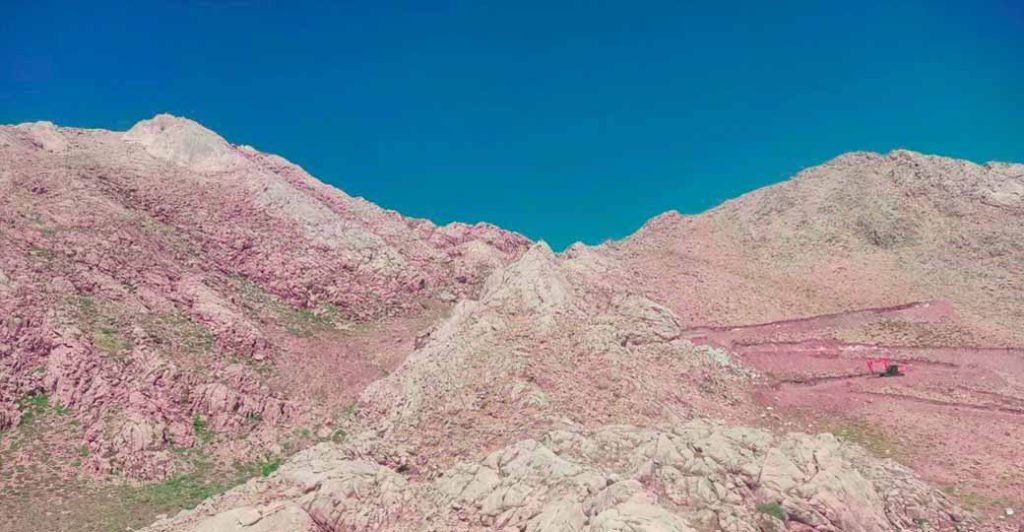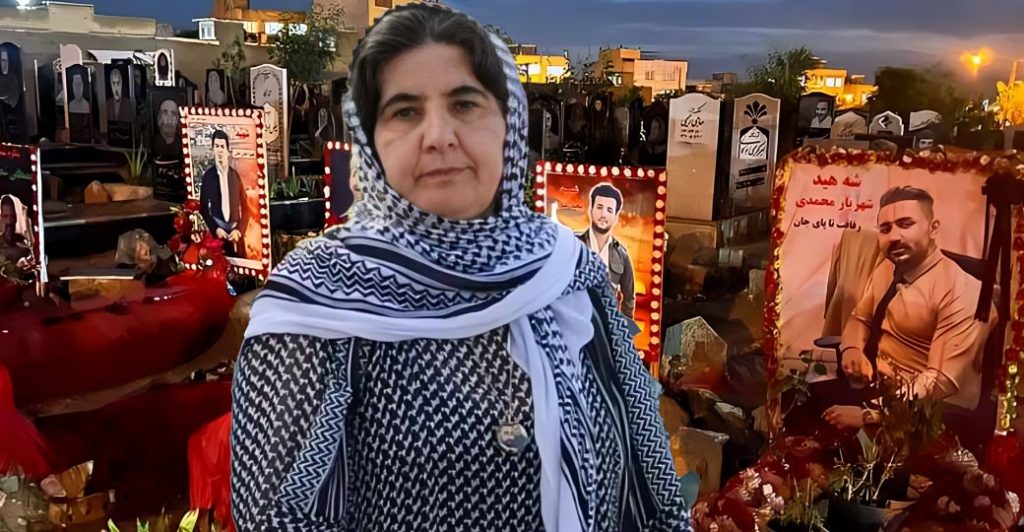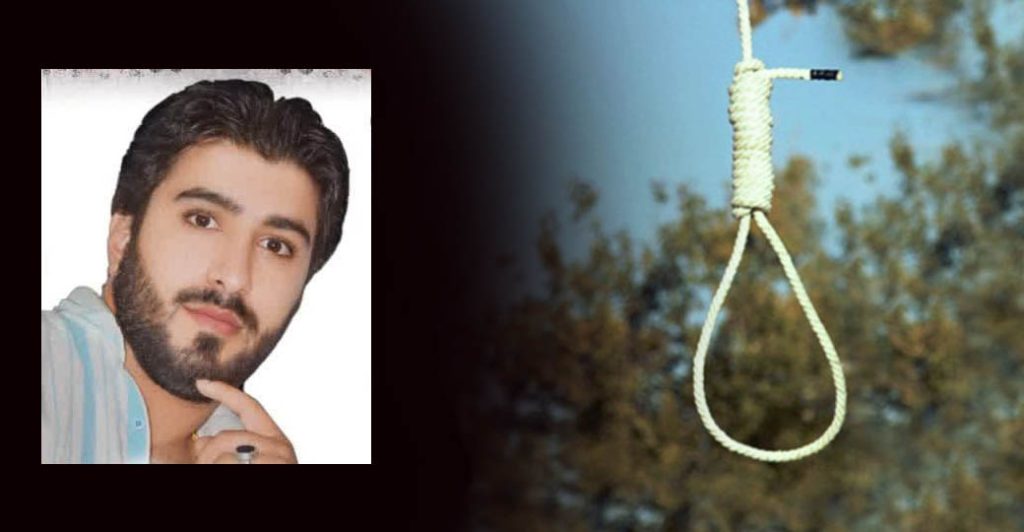The second court session for Verisheh Moradi, a member of the East Kurdistan Free Women Society (KJAR) charged with “armed insurrection” (baghi), was postponed on 28 August due to the absence of both the prosecutor’s representative and a court advisor, marking another delay in the trial of the Kurdish political prisoner.
This is the second postponement of Moradi’s trial. The previous session, scheduled for 4 August, was also cancelled after Moradi refused to attend in protest at the death sentences handed down to two other political prisoners Pakhshan Azizi and Sharifeh Mohammadi.
The Kurdistan Human Rights Network (KHRN) has learned that Moradi, who is currently being held in the women’s ward of Evin Prison, was transferred to Branch 15 of the Islamic Revolutionary Court in Tehran on 28 August.
However, Judge Abolghassem Salavati postponed the trial, citing the absence of the court advisor Judge Amouzad and the prosecutor’s representative.
During her transfer to the court, Moradi was subjected to disrespectful treatment by prison guard Nouriani, prompting her to protest.
Earlier this month, on 4 August, Moradi had her letter and defence statement published on the Bidarzani website, announcing her refusal to attend the court session as a form of protest against the death sentences handed down to Azizi and Mohammadi.
Moradi’s first hearing, on charges of “armed insurrection” (baghi) through membership of the Kurdistan Free Life Party (PJAK), was held on 16 June at Branch 15 of the Islamic Revolutionary Court in Tehran.
During this session, Judge Salavati did not allow Moradi or her lawyers to present a defence.
Since 6 May, Moradi has been prevented from contacting her family and lawyers by order of Judge Salavati, and her legal team has not yet been allowed to review her case file.
In part of her letter published by Bidarzani website, Moradi wrote: “The unjust execution sentences of activists Sharifeh Mohammadi and Pakhshan Azizi within less than a month is the Islamic Republic’s admission of its political ineffectiveness and helplessness. The new government’s pretence of strength, fear-mongering and expansion of repression on the brink of the Women, Life and Freedom revolution is nothing but a vain illusion. In this context, I have been accused of ‘armed insurrection’ because I am a woman, a Kurd and I want to live in freedom. Now, after a year of temporary detention, I am waiting for the second court session in Branch 15 of the Islamic Revolutionary Court, presided over by Judge Salavati, on 4 August. Although I know that not attending the court could be interpreted as a refusal to defend myself, I will not go to court in protest against the death sentences handed down to my comrades Sharifeh Mohammadi and Pakhshan Azizi, and I do not recognise a court that does not issue fair judgments.”
Continuing her letter, she wrote: “On 1 August 2023, I was arrested by the forces of the Ministry of Intelligence at the Sanandaj-Kamyaran checkpoint. Shooting, breaking car windows, torture and physical assault at the moment of arrest, psychological warfare, interrogation in solitary confinement (white torture) away from cameras to prevent recording of their misconduct and unethical assaults, and humiliation in front of the camera to break my will – these were part of the pressures I endured during the 13 days I spent in the Ministry of Intelligence in Sanandaj. They called me savage and said I had lost my femininity! Why do you not cry? When was the last time you cried? When did you last smell a flower? Then they transferred me to Ward 209 of Evin House of Detention, where I spent four and a half months under intense pressure during interrogations that included torture, contradictory and deceptive fabricated scenarios, threats of character assassination and forced confessions. Severe headaches and constant bleeding (from the nose), worsening neck and back pain were the gifts of my days in solitary confinement.”
Moradi, a member of the East Kurdistan Free Women Society (KJAR) from Sanandaj, Kurdistan Province, was arrested by the Ministry of Intelligence on 1 August 2023 at the entrance to Sanandaj upon her return from Kermanshah, Kermanshah Province, where she had been involved in political and organisational activities.
She spent the first 13 days of her detention in the detention centre of this security institution in Sanandaj, and afterwards was transferred to Ward 209 of Evin Prison in Tehran.
During this period, she was subjected to pressure and threats to make forced confessions, and on 26 December 2023, after five months of solitary confinement, she was transferred to the women’s ward of Evin Prison.

